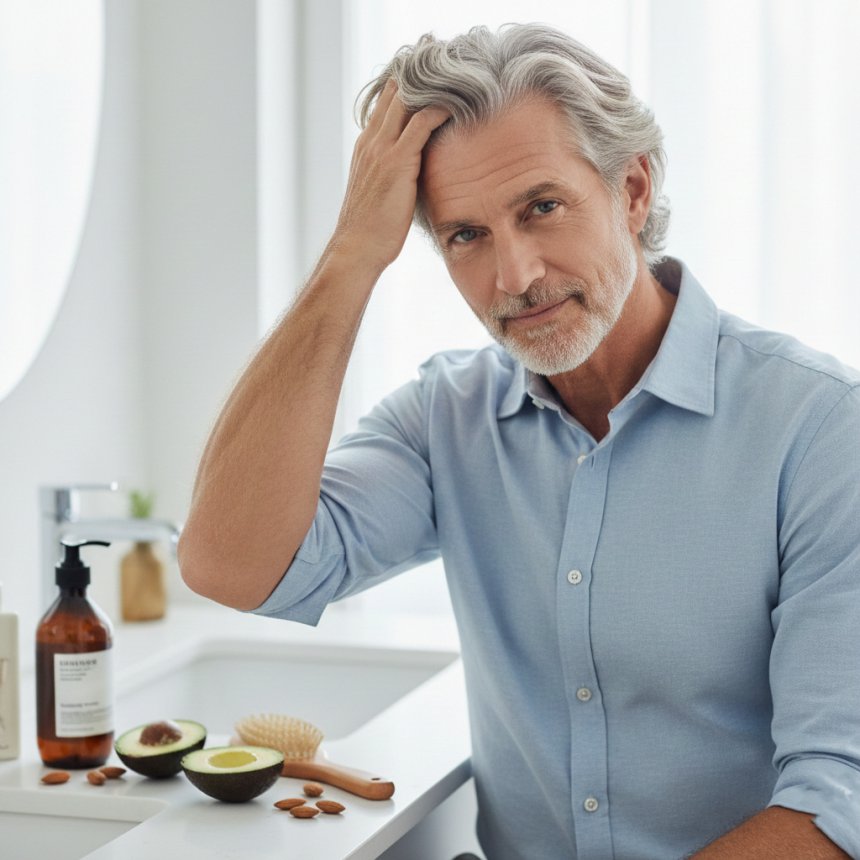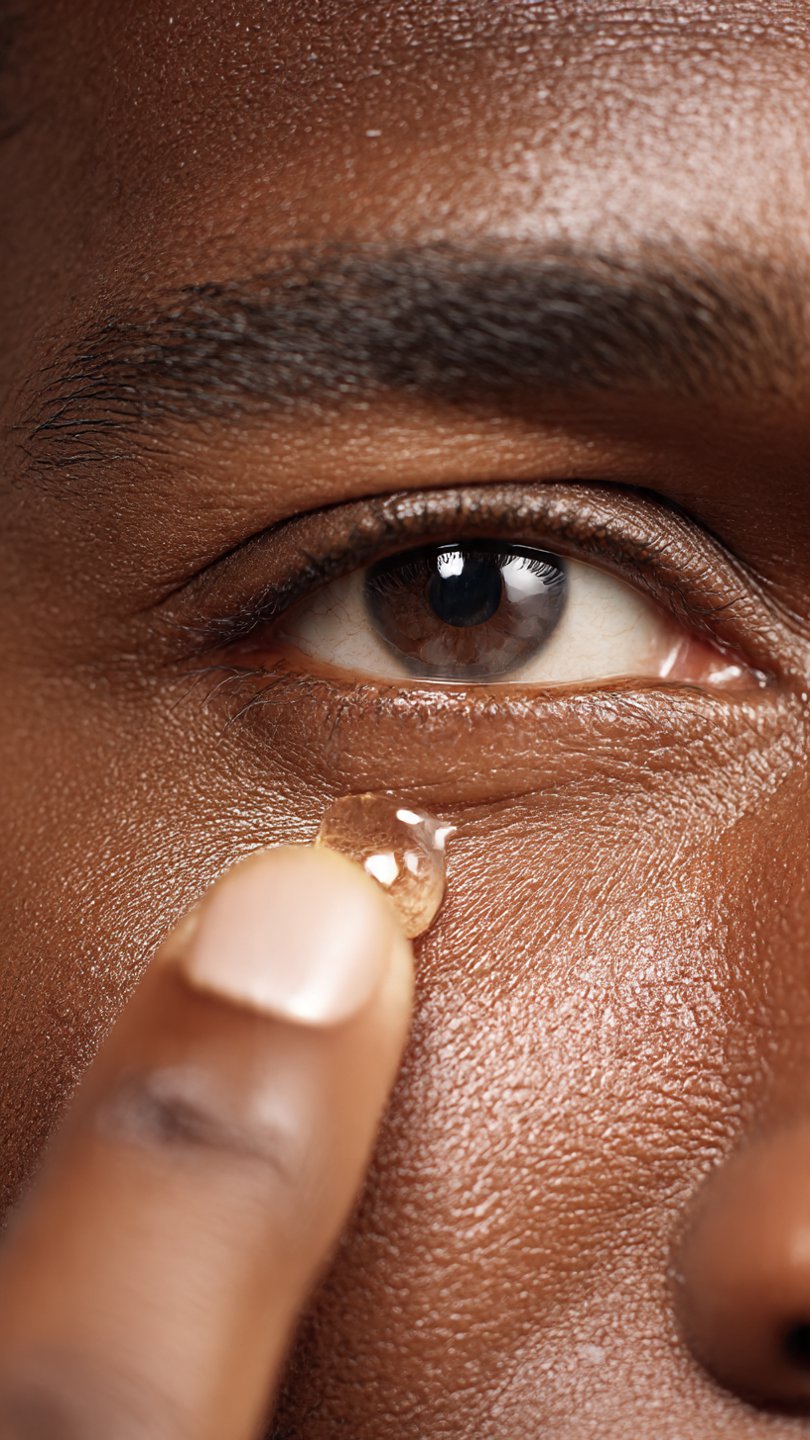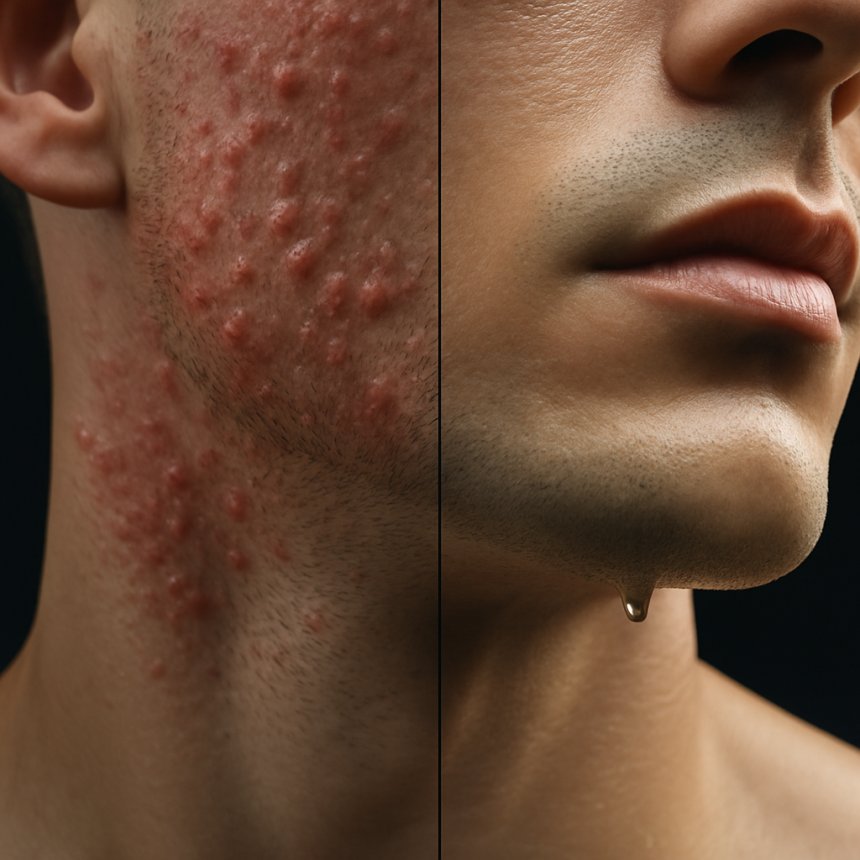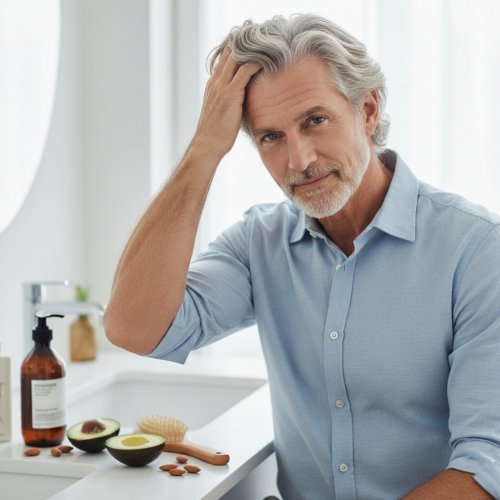How to Keep Your Hair Thick & Healthy as You Age (Men’s Guide)
Discover science-backed tips to prevent hair thinning as you age. Learn about diet, scalp care, stress management, and natural remedies for thicker, healthier hair.

Aging is inevitable, but thinning hair doesn’t have to be. Many men notice their hair losing volume, texture, and density as they get older. While genetics play a role, your lifestyle, diet, and hair care habits can significantly influence how well your hair holds up over time.
In this guide, we’ll explore science-backed strategies to maintain thick, healthy hair as you age—without relying on miracle products or quick fixes. Whether you're in your 30s, 40s, or beyond, these tips will help you keep your hair looking its best.
Why Does Hair Thin as Men Age?
Before diving into solutions, it’s important to understand why hair changes with age. The primary factors include:
- Genetics (Androgenic Alopecia): Male pattern baldness is the most common cause, driven by hormones like DHT (dihydrotestosterone).
- Hormonal Changes: Testosterone levels decline with age, affecting hair growth cycles.
- Reduced Blood Circulation: Poor scalp circulation means fewer nutrients reach hair follicles.
- Nutritional Deficiencies: Lack of key vitamins and minerals weakens hair structure.
- Stress & Inflammation: Chronic stress accelerates hair shedding.
- Poor Hair Care Habits: Harsh shampoos, excessive heat, and tight hairstyles damage hair over time.
Now, let’s explore how to counteract these issues.
1. Eat a Hair-Friendly Diet
Your hair reflects your overall health. A nutrient-rich diet supports strong, resilient hair. Key foods include:
- Protein-Rich Foods: Hair is made of keratin, a protein. Eat eggs, lean meats, fish, beans, and nuts.
- Iron & Zinc: Found in spinach, lentils, oysters, and pumpkin seeds—essential for follicle health.
- Omega-3 Fatty Acids: Salmon, walnuts, and flaxseeds reduce inflammation and support scalp health.
- Vitamins A, C, D & E: Sweet potatoes, citrus fruits, almonds, and leafy greens promote collagen and sebum production.
- Biotin & Folate: Eggs, avocados, and whole grains strengthen hair strands.
Pro Tip: Stay hydrated—dehydration leads to dry, brittle hair.
2. Scalp Care: The Foundation of Healthy Hair
A healthy scalp = healthy hair. Follow these steps:
- Massage Your Scalp: Increases blood flow, stimulating follicles. Use fingertips (not nails) for 5 minutes daily.
- Exfoliate Gently: Remove dead skin and product buildup with a soft brush or mild scrub (once a week).
- Avoid Hot Water: Washes away natural oils, leading to dryness. Use lukewarm water instead.
- Choose a Mild Shampoo: Sulfate-free options prevent excessive drying.
3. Manage Stress & Sleep Well
Chronic stress triggers telogen effluvium—a condition where hair prematurely enters the shedding phase.
- Exercise Regularly: Reduces cortisol levels and improves circulation.
- Practice Mindfulness: Meditation and deep breathing lower stress.
- Prioritize Sleep: Aim for 7-9 hours—growth hormones repair hair follicles during deep sleep.
4. Avoid Hair-Damaging Habits
- Overwashing: Strips natural oils. Wash 2-3 times per week.
- Tight Hairstyles: Ponytails and man buns cause traction alopecia.
- Heat Styling: Limit blow-drying and use a heat protectant if necessary.
- Smoking & Excessive Alcohol: Both dehydrate hair and reduce nutrient absorption.
5. Consider Natural Remedies (With Caution)
While no magic cure exists, some natural approaches may help:
- Rosemary Oil: Studies suggest it may rival minoxidil in promoting growth.
- Aloe Vera: Soothes the scalp and reduces dandruff.
- Green Tea Rinse: Contains antioxidants that may block DHT.
Note: Always patch-test oils and consult a dermatologist if shedding is severe.
6. When to See a Specialist
If you notice:
- Sudden, excessive shedding
- Bald patches or redness
- Itching or burning
A dermatologist can diagnose underlying conditions (e.g., alopecia, thyroid issues) and recommend treatments like PRP therapy or medications.
Final Thoughts
Thinning hair doesn’t have to be an inevitable part of aging. By adopting a holistic approach—nutrition, scalp care, stress management, and smart grooming—you can maintain thicker, healthier hair well into your later years.
Key Takeaway: Consistency is everything. Small daily habits add up over time, so start today!
Share
What's Your Reaction?
 Like
0
Like
0
 Dislike
0
Dislike
0
 Love
0
Love
0
 Funny
0
Funny
0
 Angry
0
Angry
0
 Sad
0
Sad
0
 Wow
0
Wow
0


















